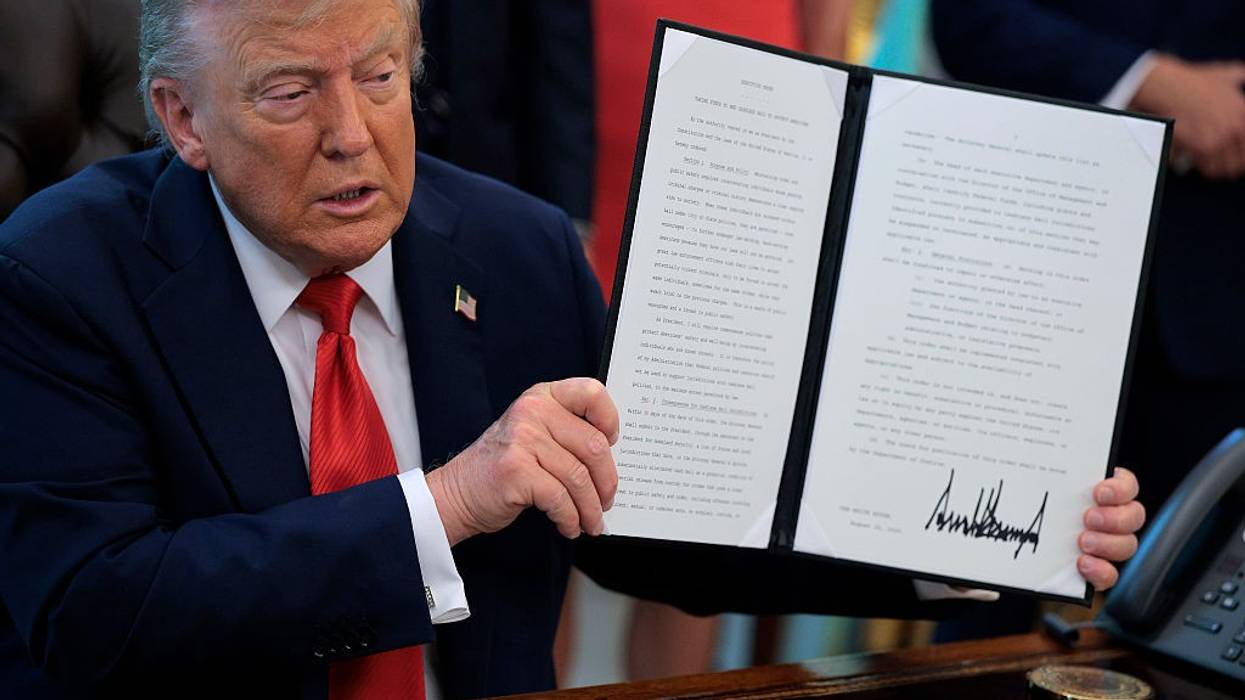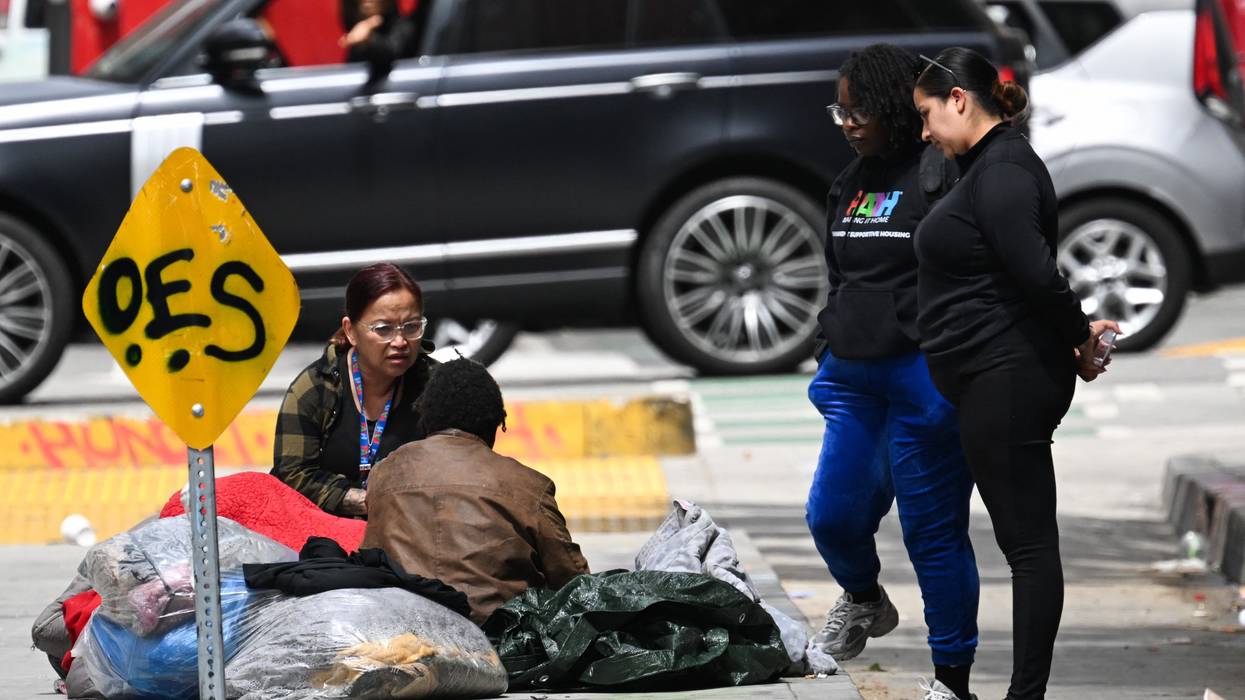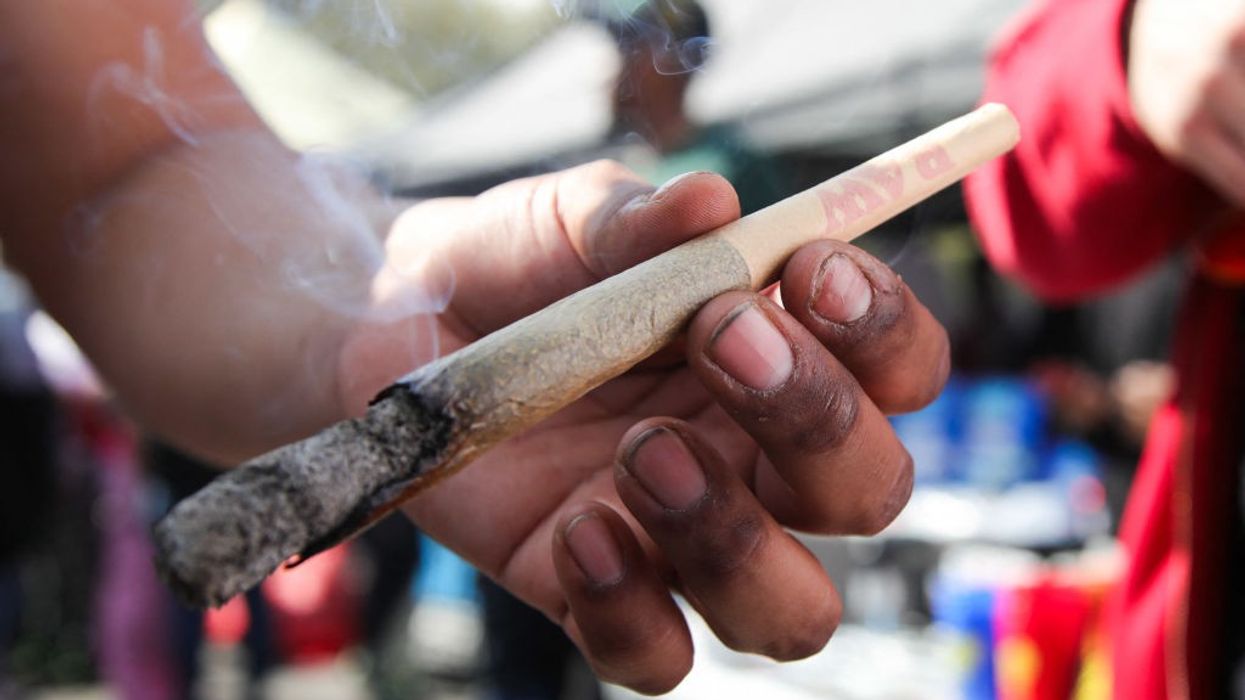Several states, including Illinois, New York, California, and New Jersey, have moved to significantly reduce or eliminate the use of cash requirements for those accused of crimes to be released pretrial. DC, meanwhile, was one of the first cities to implement the policy.
Jeremy Cherson, communications director for the Bail Project, told Common Dreams that cash bail creates a "two-tiered system of justice—one where people with money, regardless of risk, can pay bail and be released, whereas people without money will be detained, maybe unnecessarily, just because they can't afford to pay a bail amount."
More than 70% of the people currently held in jails—over 400,000 people—have not been convicted of a crime and are instead awaiting trial, according to the Prison Policy Initiative. In 2022, a report by the US Commission on Civil Rights found that 60% of them were there because they could not afford to pay bail.
People in pretrial detention are disproportionately racial minorities and those in poverty. A 2021 study by the Brookings Institution found that the average person in pretrial detention loses $30,000 on average during the process.
"Cash bail is a system that preys on poor people," Wanda Bertram of the Prison Policy Initiative, told Common Dreams. "They can lose their jobs and their housing. They can get disconnected from critical medical care that they might need. It's a very destabilizing experience."
Trump has claimed that cashless bail allows criminals to get out of jail without punishment and has caused cities to become cesspools of criminality.
"Somebody kills somebody, they go and don't worry about it," Trump told reporters on Monday as he signed the order. "No cash. Come back in a couple of months. We'll give you a trial. You never see the person again."
In a press conference earlier this month, Trump claimed that "every place in the country where you have no cash bail is a disaster."
"That's what started the problem in New York, and they don't change it," he said. "That's what started it in Chicago. I mean, bad politicians started it, bad leadership started it. But that was the one thing that's central, no cash bail."
But as Cherson explained, cashless bail policies are not a "get-out-of-jail-free card."
"They are often measured, calculated approaches that create a system and processes where people are evaluated for risks of flight or risks to other individuals if they're released, and a series of conditions are set against them, or they're detained pretrial," he says. "They're not all let out. So that's often misunderstood about what bail reform is."
Instead of using financial means, judges determine who will remain in detention based on an individual's flight risk or the danger they may pose to the community.
The key, Cherson says, is that "they need to have individualized hearings where we are making determinations about what happens if we release somebody based on more than a hunch."
According to an investigation by FactCheck.org, across all the states that have ended or limited cash bail, only one person charged with murder has ever been released without bail. A Rockville, Illinois, judge released the defendant in 2024 because the case against him was exceptionally weak, and the judge still required him to meet "fairly strict requirements" while awaiting trial.
"There is nothing to suggest that cashless bail makes cities less safe," Bertram said.
In 2023, PPI examined four states and nine cities and counties that had ended cashless bail. They found that every single one of these jurisdictions had "decreases or negligible increases in crime or rearrest rates after implementing reforms."
Many of the other major cities Trump has threatened with a federal military takeover, including Chicago and New York, have experienced massive drops in crime over the past year, contrary to Trump's claims.
Bertram said that in Washington, DC, where Trump has directly ended cashless bail, the program had been "extremely effective."
In 2022, the last year for which data is available, 93% of those released without bail were not rearrested. In 2019, the most recent year with data, 99% of those who were released for violent crimes were not rearrested.
According to its website, the Bail Project has provided free bail to 34,000 people across the country. Despite the lack of financial incentive, in 2024, 95% of its clients still returned to court, and 64% of them had their cases dismissed.
"Absent our intervention," Cherson says, "many of those people would have likely taken a guilty plea just to go home. They would have been overwhelmed by the circumstances that they're in."
"Crime is something that's very complicated," Bertram said. "It's caused by a lot of different things, including a lot of social determinants."
She noted that the Trump administration has instituted dramatic cuts to programs to reduce gun violence, investigate crimes, and provide services to victims, and to "all of the things that we know to be related to the social determinants of crime"—social safety net programs like Medicaid, investments in affordable housing, and services for those dealing with homelessness, addiction, and mental health issues.
Bertram said, "It is a useful distraction from the president's disinvestment in all those things to put this order in place about cash bail as if it's going to make any difference, which it's not."
"All these states, localities, and jurisdictions that have pursued efforts to minimize or eliminate the use of cash bail have done that in service of the core principles of our justice system," Cherson said. "Principles of equity and fairness and safety and the presumption of innocence."




